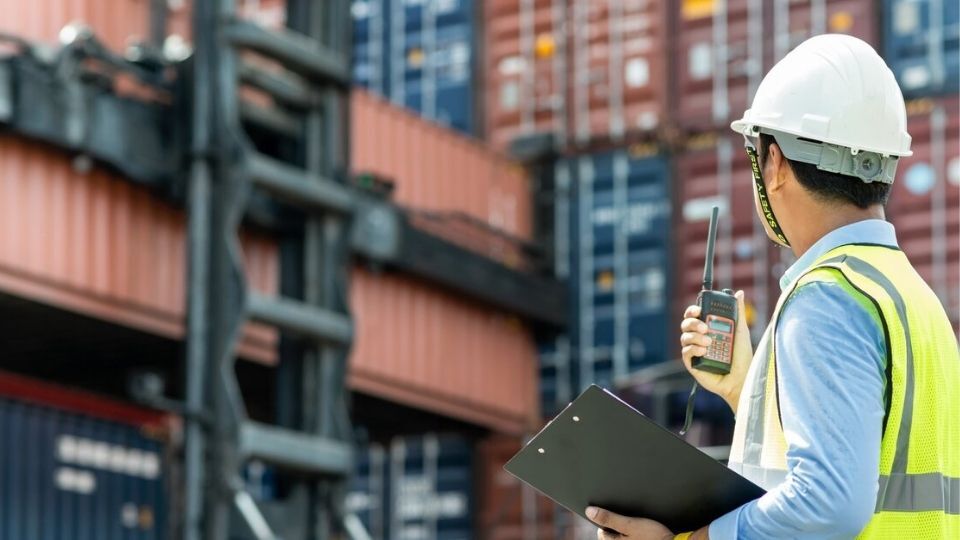Analyzing the impact of border traffic and essential services in Europe during COVID-19
Fleet data can shed light on how COVID-19 is impacting border traffic in Europe.
By Europe Team
May 26, 2022

COVID-19 has swept across Europe in an unprecedented way, and the number one priority for all countries at this time is clear, as quoted by the European Commission, “keeping citizens healthy and ensuring that the health systems have all the resources they need in terms of materials and money.” While the negative impact to the economy is yet fully understood, we do know that fleets remain a vital component in keeping the economy running.
Essential services are the lifeline
Countries across Europe including, Italy, Spain, UK, France, and Germany have now introduced lockdown measures to help slow down the impact of the virus. This has meant that a number of services are no longer available. As a result, businesses and industries have started to feel the effects — with significant financial hardship, to the point where some businesses are having to cease operations indefinitely.
Importantly, during this difficult time essential services must continue to operate in order to maintain the health of our citizens and enable the allocation of crucial resources. Essential services include, front line such as emergency and police services, courier and food delivery. And, now more than ever, these services act as an essential lifeline to the economy.
In this way, fleets act as a social-economic barometer. The demand for essential services is at levels never seen before, therefore, it is so important to plan and allocate resources where they are most needed. Stress is clearly visible as online retailers and food delivery services temporarily suspend operations as they are unable to cope with the demand. National governments and policymakers are working to identify points of pressure, and supply chain bottlenecks to help develop response mitigation strategies. This is why we must all help where we can, and we know fleet data can and will play a vital role.
Data, the impact, the response
At Geotab, we think by leveraging the connected vehicle base in Europe, we can make a difference and help governments have greater visibility of the current situation at a micro-level, and in turn make informed decisions as a response. Data is an essential tool to help protect important assets of business and society: people, their safety and health. For that reason, Geotab’s Data & Analytics team have analyzed the impact on border trade and the activity of essential fleet services across Europe before and after the implementation of lockdown measures.
A key concern for business and individuals has been whether the supply of goods will continue to flow during the pandemic. The activity insights are split into two key parts to better understand the impact of COVID-19 on business and private and public sector fleets.
- Border traffic: We compared border activity between a number of key markets including, France, the Netherlands, Spain, and Germany.
- Essential services: We compared the continued business activity of essential vs non-essential businesses. This has been done on an european level as well as country level taking the different timings of strict lockdown measures into account.
Geotab is a market leader in fleet management solutions, and has aggregated and anonymized the data through our customer fleets in Europe, these include, leasing and rental, last-mile delivery, utilities, transport and service sector. The results are a percentage of activity compared to a business-as-usual scenario called normal activity before the crisis to help make sense of the impact to business.
See also: The impact of COVID-19 on commercial transportation and trade activity
Analysis of Spanish-French and German-Dutch borders
It is clear to see a significant increase in cross-border activity in the lead up to COVID-19 restrictions being put into practice. Between Germany and the Netherlands the 10, 16, and 21 March demonstrate a significant increase in border activity. Similarly, between France and Spain cross-border increased, particularly on the dates of 11, 12, and 18 March.
.png)
Figure 1. Amount of trips crossing borders compared to normal activity in Europe. Normal activity: 10 to 29 March.
Notably, non-essential travel and social distancing restrictions were put in place in Germany and the Netherlands on the 15 and 16 March respectively - the highest increase in border crossings occurred on the 10th March with a nearly 30 percent increase in activity, closely followed by the 16 March with a 20 percent increase. Spanish restrictions began on the 14 March, and therefore, it may be no coincidence of increased activity in the days leading up to the lockdown in anticipation of restrictions being introduced.
Impact on essential services activity
As COVID-19 continues to spread, essential services become increasingly important in keeping the economy running. On the other hand, non-essential services were likely to face significant financial hardship during this period, as governments across Europe place restrictions on their activity. Our data clearly shows a significant drop in non-essential fleet activity after the 10 March, which is not surprising given that restrictions began to surface around this time.

Figure 2: Number of trips compared to normal activity split by essential and non-essential services in Europe. Normal activity: 15th February to 2nd April.
Returning to essential services that include, police and emergency services, public transport, last-mile, courier services are crucial at this time as the demand for these services remains high. The elderly rely on home-delivery services, hospital workers rely on public transport to travel to-and-from work.
Our analysis shows an increase in essential services compared to normal. However, the dependency on essential services has slightly declined following the introduction of social distancing measures. A possible explanation could be that governments have introduced measures such as staying two meters away in public and working-from-home to slow down the demand curve, as well as, non-essential businesses creating capacity for essential services to function. On a country level, we do notice differences across geographical location - however, the drops in activity are in parallel with the introduction of social distancing measures.
The impact on all vocation activity
The impact on fleets vary. Some are experiencing a sharp increase in demand, for example, food delivery services and others a sharp decline due to having to temporarily close operations. But, what does the complete picture look like? We did some analysis breaking down the results per country. Significantly, all countries experience a decline in overall trip activity, some more severe than others.
.png)
Figure 3: Number of trips compared to normal activity, per country. Normal activity: 15 February to 2 April.
For example, in the UK, the drop was delayed, most likely due to it being one of the last countries to introduce social distancing measures, 23 March, however, the decline is less severe than other countries in Europe. In Spain and France, the drop in activity was much more severe up to 80 percent in the space of one week starting 11 March before restrictions came into effect. On the other hand, the impact in Germany was much more gradual over a prolonged period.
Conclusion
With a large connected vehicle base in Europe, through the use of advanced aggregation and anonymization techniques, we can analyze and understand the impact of COVID-19 across Europe. Notably, a spike in activity across key borders in Europe before government invention, and easing thereafter. Essential services that are keeping our economies running have seen a sharp increase in demand, but again we are beginning to see a slowdown. While data continues to improve, these insights can be vital in developing continuity planning for fleets and governments alike. More insights around the impact in Europe, cities, and sectors will become available in the weeks ahead. Stay safe!
Contributers: Joshua Gordon (Marketing Manager, UK and Ireland), Paul Stobbe (Solutions Engineer) and Jorge González (Solutions Engineer)
Subscribe to get industry tips and insights
The Europe Team writes about fleet news in Europe.
Table of Contents
Subscribe to get industry tips and insights
Related posts
.jpg)
Go beyond reactive truck maintenance with predictive solutions that drive profits
December 8, 2025
3 minute read

The $4B Crisis: Video Intelligence as the Answer to Fleet Distraction
December 2, 2025
3 minute read

The True Cost of Cargo Theft: When Customer Trust is on the Line
November 24, 2025
2 minute read

Telematics device cost: Key factors that determine pricing
November 19, 2025
5 minute read

Law enforcement technology: Four trends to know for 2026
November 7, 2025
6 minute read

Four seasons of fleet intelligence with Geotab's Public Works solution
November 7, 2025
2 minute read